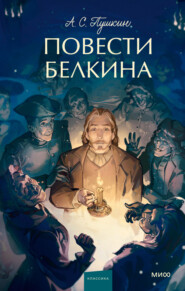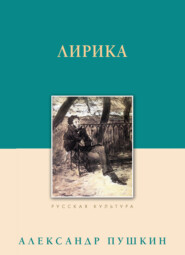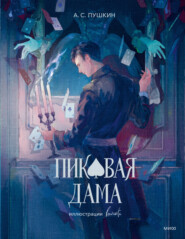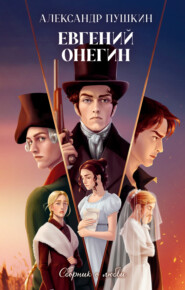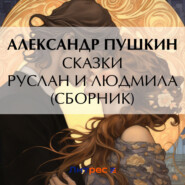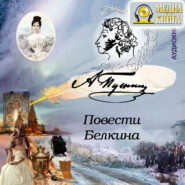По всем вопросам обращайтесь на: info@litportal.ru
(©) 2003-2025.
✖
Евгений Онегин / Eugene Onegin
Настройки чтения
Размер шрифта
Высота строк
Поля
And care but little for its ends.
To dreams I long have closed mine eyes,
Yet sometimes banished hopes will rise
And agitate my heart again;
And thus it is ’twould cause me pain
Without the faintest trace to leave
This world. I do not praise desire,
Yet still apparently aspire
My mournful fate in verse to weave,
That like a friendly voice its tone
Rescue me from oblivion.
XL
Perchance some heart ’twill agitate,
And then the stanzas of my theme
Will not, preserved by kindly Fate,
Perish absorbed by Lethe’s stream.
Then it may be, O flattering tale,
Some future ignoramus shall
My famous portrait indicate
And cry: he was a poet great!
My gratitude do not disdain,
Admirer of the peaceful Muse,
Whose memory doth not refuse
My light productions to retain,
Whose hands indulgently caress
The bays of age and helplessness.
Canto the Third
‘Elle était fille, elle était amoureuse’
Malfilatre
I
“Whither away? Deuce take the bard!” —
“Good-bye, Onegin, I must go.” —
“I won’t detain you; but ’tis hard
To guess how you the eve pull through.” —
“At Larina’s.” – “Hem, that is queer!
Pray is it not a tough affair
Thus to assassinate the eve?” —
“Not at all.” – “That I can’t conceive!
‘Tis something of this sort I deem.
In the first place, say, am I right?
A Russian household simple quite,
Who welcome guests with zeal extreme,
Preserves and an eternal prattle
About the rain and flax and cattle.” —
II
“No misery I see in that” —
“Boredom, my friend, behold the ill – ”
“Your fashionable world I hate,
Domestic life attracts me still,
Where – “ – “What! another eclogue spin?
For God’s sake, Lenski, don’t begin!
What! really going? ’Tis too bad!
But Lenski, I should be so glad
Would you to me this Phyllis show,
Fair source of every fine idea,
Verses and tears et cetera.
Present me.” – “You are joking.” – “No.” —
“Delighted.” – “When?” – “This very night.
They will receive us with delight.”
III
Whilst homeward by the nearest route
Our heroes at full gallop sped,
Can we not stealthily make out
What they in conversation said? —
“How now, Onegin, yawning still?” —
“‘Tis habit, Lenski.” – “Is your ill
More troublesome than usual?” – “No!
How dark the night is getting though!
Hallo, Andriushka, onward race!
The drive becomes monotonous —
Well! Larina appears to us
An ancient lady full of grace. —
That bilberry wine, I’m sore afraid,
The deuce with my inside has played.”
IV
“Say, of the two which was Tattiana?”
“She who with melancholy face
And silent as the maid Svetlana[27 - Svetlana, a short poem by Joukovski, upon which his fame mainly rests. Joukovski was an unblushing plagiarist. Many eminent English poets have been laid under contribution by him, often without going through the form of acknowledging the source of inspiration. Even the poem in question cannot be pronounced entirely original, though its intrinsic beauty is unquestionable. It undoubtedly owes its origin to Burger’s poem Leonora, which has found so many English translators. Not content with a single development of Burger’s ghastly production the Russian poet has directly paraphrased Leonora under its own title, and also written a poem Liudmila in imitation of it. The principal outlines of these three poems are as follows: A maiden loses her lover in the wars; she murmurs at Providence and is vainly reproved for such blasphemy by her mother. Providence at length loses patience and sends her lover’s spirit, to all appearances as if in the flesh, who induces the unfortunate maiden to elope. Instead of riding to a church or bridal chamber the unpleasant bridegroom resorts to the graveyard and repairs to his own grave, from which he has recently issued to execute his errand. It is a repulsive subject. Svetlana, however, is more agreeable than its prototype Leonora, inasmuch as the whole catastrophe turns out a dream brought on by “sorcery,” during the “sviatki” or Holy Nights (see Canto V. st. x), and the dreamer awakes to hear the tinkling of her lover’s sledge approaching. “Svetlana” has been translated by Sir John Bowring.]
Hard by the window took her place.” —
“The younger, you’re in love with her!”
“Well!” – “I the elder should prefer,
Were I like you a bard by trade —
In Olga’s face no life’s displayed.
‘Tis a Madonna of Vandyk,
An oval countenance and pink,
Yon silly moon upon the brink
Of the horizon she is like!” —
To dreams I long have closed mine eyes,
Yet sometimes banished hopes will rise
And agitate my heart again;
And thus it is ’twould cause me pain
Without the faintest trace to leave
This world. I do not praise desire,
Yet still apparently aspire
My mournful fate in verse to weave,
That like a friendly voice its tone
Rescue me from oblivion.
XL
Perchance some heart ’twill agitate,
And then the stanzas of my theme
Will not, preserved by kindly Fate,
Perish absorbed by Lethe’s stream.
Then it may be, O flattering tale,
Some future ignoramus shall
My famous portrait indicate
And cry: he was a poet great!
My gratitude do not disdain,
Admirer of the peaceful Muse,
Whose memory doth not refuse
My light productions to retain,
Whose hands indulgently caress
The bays of age and helplessness.
Canto the Third
‘Elle était fille, elle était amoureuse’
Malfilatre
I
“Whither away? Deuce take the bard!” —
“Good-bye, Onegin, I must go.” —
“I won’t detain you; but ’tis hard
To guess how you the eve pull through.” —
“At Larina’s.” – “Hem, that is queer!
Pray is it not a tough affair
Thus to assassinate the eve?” —
“Not at all.” – “That I can’t conceive!
‘Tis something of this sort I deem.
In the first place, say, am I right?
A Russian household simple quite,
Who welcome guests with zeal extreme,
Preserves and an eternal prattle
About the rain and flax and cattle.” —
II
“No misery I see in that” —
“Boredom, my friend, behold the ill – ”
“Your fashionable world I hate,
Domestic life attracts me still,
Where – “ – “What! another eclogue spin?
For God’s sake, Lenski, don’t begin!
What! really going? ’Tis too bad!
But Lenski, I should be so glad
Would you to me this Phyllis show,
Fair source of every fine idea,
Verses and tears et cetera.
Present me.” – “You are joking.” – “No.” —
“Delighted.” – “When?” – “This very night.
They will receive us with delight.”
III
Whilst homeward by the nearest route
Our heroes at full gallop sped,
Can we not stealthily make out
What they in conversation said? —
“How now, Onegin, yawning still?” —
“‘Tis habit, Lenski.” – “Is your ill
More troublesome than usual?” – “No!
How dark the night is getting though!
Hallo, Andriushka, onward race!
The drive becomes monotonous —
Well! Larina appears to us
An ancient lady full of grace. —
That bilberry wine, I’m sore afraid,
The deuce with my inside has played.”
IV
“Say, of the two which was Tattiana?”
“She who with melancholy face
And silent as the maid Svetlana[27 - Svetlana, a short poem by Joukovski, upon which his fame mainly rests. Joukovski was an unblushing plagiarist. Many eminent English poets have been laid under contribution by him, often without going through the form of acknowledging the source of inspiration. Even the poem in question cannot be pronounced entirely original, though its intrinsic beauty is unquestionable. It undoubtedly owes its origin to Burger’s poem Leonora, which has found so many English translators. Not content with a single development of Burger’s ghastly production the Russian poet has directly paraphrased Leonora under its own title, and also written a poem Liudmila in imitation of it. The principal outlines of these three poems are as follows: A maiden loses her lover in the wars; she murmurs at Providence and is vainly reproved for such blasphemy by her mother. Providence at length loses patience and sends her lover’s spirit, to all appearances as if in the flesh, who induces the unfortunate maiden to elope. Instead of riding to a church or bridal chamber the unpleasant bridegroom resorts to the graveyard and repairs to his own grave, from which he has recently issued to execute his errand. It is a repulsive subject. Svetlana, however, is more agreeable than its prototype Leonora, inasmuch as the whole catastrophe turns out a dream brought on by “sorcery,” during the “sviatki” or Holy Nights (see Canto V. st. x), and the dreamer awakes to hear the tinkling of her lover’s sledge approaching. “Svetlana” has been translated by Sir John Bowring.]
Hard by the window took her place.” —
“The younger, you’re in love with her!”
“Well!” – “I the elder should prefer,
Were I like you a bard by trade —
In Olga’s face no life’s displayed.
‘Tis a Madonna of Vandyk,
An oval countenance and pink,
Yon silly moon upon the brink
Of the horizon she is like!” —






